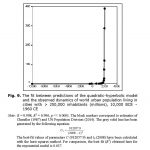Jan Briffaerts – When Congo Wants To Go To School. Educational Realities In A Colonial Context
Rozenberg Quarterly will publish on paper and online:
Jan Briffaerts – When Congo wants to go to school. Educational realities in a colonial context. An investigation into educational practices in primary education in the Belgian Congo (1925-1960) – Pb – 420 pag. – € 39,50 – ISBN 978 90 3610 144 8 – 2014
The education system in the Congo was widely considered to be one of the best in colonial Africa, in particular because of its broad reach among the Congolese youth. At independence however, the wake-up call was brutal as soon it became clear that the colonial educational system had neglected to form an educated class of people able to cope with administrating one of Africa’s biggest and economically most important countries. To be able to understand the mechanisms and effects of missionary education it is most enlightening to go back to the classroom and investigate the everyday reality of school. What did missionary education do exactly, how did it work, what did it teach, and how did it relate to its subjects, the children of the Congo?
This study gives clear insights into the everyday realities of colonial education. It is the result of historical research into educational practices and realities in catholic missionary schools in the Tshuapa region, located in the south of the Congolese province of Equateur. It is based on a rich array of historical source material, ranging from missionary archives and mission periodicals through to contemporary literature and interviews with missionnaries and former pupils who experienced colonial education themselves. The title, “When Congo wants to go to school… ” refers to one of many articles published in Belgian mission periodicals on the subject of the education and civilisation work carried out by missionaries in the Belgian colony.
The complete book now online:
Introduction & A Few Preliminary Remarks
Educational Organisation In The Belgian Congo (1908-1958)
The Missionaries And The Belgian Congo: Preparation, Ideas And Conceptions Of The Missionaries
Catholic Missions In The Tshuapa Region
Part II – Realities
The Educational Climate
Educational Comfort
The Subject Matter
Educational Practices
Part III – Acti Cesa
The Short Term: Reactions
The Long Term: Memories
As Justification And Conclusion
Appendices & Bibliography
The Irish Asia Strategy and Its China Relations 1999-2009 – 爱尔兰的亚洲战略与中爱关系 1999-2009
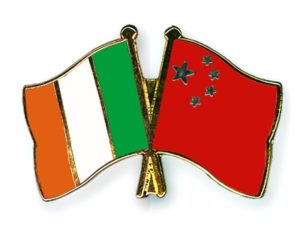 Fan Hong & J.C. Gottwald – The Irish Asia Strategy and Its China Relations 1999-2009 – 爱尔兰的亚洲战略与中爱关系 1999-2009
Fan Hong & J.C. Gottwald – The Irish Asia Strategy and Its China Relations 1999-2009 – 爱尔兰的亚洲战略与中爱关系 1999-2009
The Irish government’s Asia Strategy was initiated in 1999. It aimed to establish with Asian countries a coherent policy of engagement, on a political, economic, commercial, educational and cultural level. China was one of the countries identified as core in the Asia Strategy. Guided by the Asia Strategy political, economic, cultural, educational and social relations between Ireland and China have improved beyond recognition during the past ten years.
A decade after its inauguration the Asia Strategy is set to be revised to take account of the ever changing world. In this book for the first time, leading representatives from government, business and academia together revisit the Asia Strategy, examine its development and analyses it in the context of other European countries.
Following a Foreword by the Minister of Foreign Affairs, the authors discuss the political process that led up to the strategy and the roles of various actors within the strategy, in terms of Ireland-China in particular. Together with its Appendix containing an overview of significant historical steps in bilateral relations, this book presents an informative and in-depth analysis on Ireland’s Asia Strategy and its engagement with the emerging economies in the Asian region, especially China.
Fan Hong is Professor of Chinese Studies. She received her BA and MA in China and PhD at Strathclyde University in Glasgow. She was Chair in Chinese Studies at De Montfort University in UK before becoming the first director of the Irish Institute of Chinese Studies (UCC) since its funding in 2006 and first Head of School of Asian Studies since its founding in 2009. She has published extensively on Chinese historical and social issues.
J.C. Gottwald held positions at Free University Berlin and University of Trier before joining the UCC in 2006. He has published internationally on political and economic reform in China, European China policies and the politics of financial services regulation in Europe and China.
Contents
Acknowledgement (See Below)
Foreword – Micheál Martin, TD, Minister for Foreign Affairs
Foreword – Dr. Sha Hailin, Former Ambassador of the People’s Republic of China to Ireland
1. Introduction: The Rise of China and the Irish Asia Strategy – Fan Hong & Jörn-Carsten Gottwald
2a. China’s Economy and Enterprise ~ Part One – China’s Economy: Achievements, Challenges, And Future Orientation – Sha Hailin
2b. China’s Economy and Enterprise ~ Part Two – Business Competitiveness on which China’s Economic Strenght is based – Sha Hailin
2c. China’s Economy and Enterprise ~ Part Three – Sino-Ireland friendly cooperation and mutual development – Sha Hailin
3. Social Change and the Urbane –Rural Divide in China – Martin King Whyte
4. Towards a Creative China: Education in China – Geir Sigurdsson
5. Creating an Asia Strategy – Sean Gorman
6. Irish-Chinese Political and Economic Relations: An Overview – James Cuffe
7. Sino-Irish Relations: a View from China – John Armstrong & Yang Ning
8. Promoting Irish Interests: the Role of the Government – Michael Garvey
9. Friendship between Citizens: the Twinning of Cities – Pat Ledwidge
10. Connecting Cultures: the Role of Education – Fan Hong
11. Comparing Irish and Chinese Politics of Regulation – Jörn-Carsten Gottwald & Neil Collins
12. Ireland and the ASEM Process: the Case of the Asia Europe Foundation – Peter Ryan & Tom Hardiman
13. The Irish Strategy in European Comparison – Deirdre Coby, Niall Duggan & Benedikt Seemann
14. Ireland, China and the EU: Foreign Policy in a Europeanised Context – Andrew Cottey & Natasha Underhill
About the authors
Appendix I: A Decade of the Asia Strategy (1999-2009)
Appendix II: Speech by An Taoiseach Mr Bertie Ahern TD at Tsinghua University, Beijing, January 18, 2005
Appendix III: Chronology of Major Events of Sino-Irish Relations (1979-2009) Read more
Irish Investment In China. Setting New Patterns ~ Contents, List Of Abbreviations & Glossary Of Terms
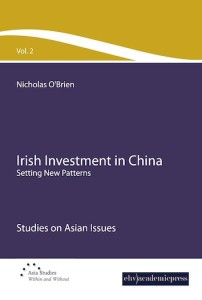 Now online: Nicholas O’Brien – Irish Investment in China. Setting new patterns.
Now online: Nicholas O’Brien – Irish Investment in China. Setting new patterns.
Consideration of Irish investment in China will be located within the context of investment theory. Accordingly, chapter two examines the seminal literatureon foreign direct investment and sets out an appropriate model of investment theory within which this research shall be considered. The limited literature on Irish outward FDI is also considered, with specific emphasis on Barry et al’s model on Irish outward FDI.
Chapter three outlines the results of this research and emerging themes are identified. This allows conclusions to be drawn as to whether Barry et al’s model holds in the case of Irish FDI into China. It should be stressed that this is not in any manner a judgement on Barry et al’s model. Rather, it is a reflection on the nature of China as an emerging economy and the unique political economy which it enjoys.
Chapter four draws on the research to explore the opportunities and challenges which China represents. The principal locational advantages and disadvantages which China poses are set out. It is argued that the major potential which China represents for Irish investors lies in market opportunity rather than in low labour costs, an opinion which is supported by the relevant literature on FDI in China. The principal locational disadvantages are identified as existing in the regulatory, cultural and legal environments. This allows conclusions to be drawn on our sub-hypothesis, namely the challenges which China poses for investors.
Chapter five explores the nature of Irish FDI into China. The non-application of Barry et al’s model to China is discussed together with our prescriptive research question, namely the desirability of state involvement in outward FDI. This chapter also seeks to explain why Irish FDI into China is different from that in the traditional destinations for outward FDI.
The concluding chapter draws on previous chapters to identify conclusions which can be drawn. Key findings are highlighted and potential areas for further research suggested.
Chapter 1 – The Giant Arises
Introduction
Research Methodology
Outline
Chapter 2 – The Nature of Outward FDI
Introduction
Investment Defined
Dunning’s Eclectic Paradigm
Investment Theory
The Role of the Multinational Enterprise in FDI
Why FDI Occurs
Irish Outward FDI
Barry’s Model on Irish Outward FDI
China and Inward FDI
Relationships and Contract Law
Conclusion
Chapter 3 – The Views of Investors
Introduction
Profile of the MNEs Included in This Research
Structure of the Chinese Subsidiaries
Rationale for Investing and Incentives
Incentives
Experience Since Investing
Disincentives and Barriers to Investing in China
Guanxi
Intellectual Property Rights
Contract Law
Role of the State
Investors in Eastern Europe
Conclusion
Chapter 4 – A land of Opportunity and Challenge
Introduction
Locational Advantages which China Offers
Locational Disadvantages which China Poses
The Regulatory Framework
China’s Culture
Contract Law
Intellectual Property Rights
Corruption and the Giving of Gifts
Regionalism – Advantages and Disadvantages for FDI
Conclusion
Chapter 5 – Irish FDI into China–Evidence, Potential and Policy
Introduction
Barry’s Model
Irish FDI into China and Barry’s Model
The Potential for Irish Investment
Home Country Effect
Irish Public Policy
Conclusion
Chapter 6 – Conclusions & Bibliography
Introduction
Main Findings
Conclusion
Bibliography Read more
Gabriel Garcia Marquez 1927 – 2014
Terug naar Macondo – Het spook van Honderd jaar eenzaamheid en het inheemse innerlijk van de Mesties ~ Inhoudsopgave
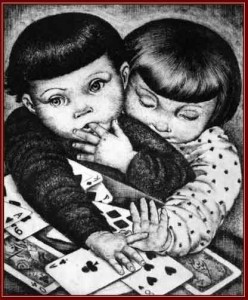 Bij dit boek
Bij dit boek
Kennersblik; Stem; Boek.
Achter de coulissen van Macondo
Over de oorsprong
Cuernavaca; Herinnering; Guajiros; Ten slotte
Over de roman
Begin; Revolte; Segundo; Storm; Ten slotte
Over de nesteling
Lenzen; Decodering; Voelen; Geheugen; Ten slotte
Over het theater
Wilsbeschikking; Soorten; Herinneringsruimten; Bewust; Schijnwerpers; Bundeling; Politiek; Ten slotte
Op de podia van Macondo
Melquíades en de geschiedenis
Tijdsgevoel; Dictaturen; Blikveld; Cambridge; Bevolkingsdruk; Ten slotte
José Arcadio Buendía en de schepping
Schepper; Wortels; Slang; Viering; Lichaam; Instellingen;Scheppingsverhalen; Ten slotte
Úrsula en de omwenteling
Opnieuw; Marianismo; Antecedenten; Breekijzerin; Guadalupe; Ten slotte
Bij twee hoofdrolspelers uit Macondo
Het aureool van de Kolonel
Ingewijd; Normatief; Thompson; Opstanden; Oorlogen; Gemeenten; Glimlach; Ten slotte
De arcadische strijd van Segundo
Arcadisch; Monroe; Salvador; Trauma; Mannelijkheid; Ten slotte
De slotscène van Macondo
De gemoedstoestand
Utopie; Identiteit; Liefde; Ten slotte.
Open Culture ~ 135 Free Philosophy eBooks
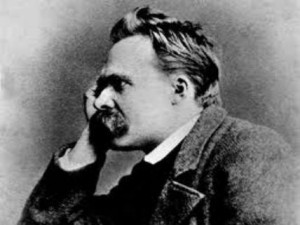 This Open Culture page features a growing list of Free Philosophy eBooks, presenting essential works by Aristotle, Hegel, Kant, Nietzsche, Wittgenstein and many other philosophers. You can generally read these texts on your Kindle, iPad & iPhone, or web browser. For those interested in philosophy, you won’t want to miss the collection of Free Online Philosophy Courses.
This Open Culture page features a growing list of Free Philosophy eBooks, presenting essential works by Aristotle, Hegel, Kant, Nietzsche, Wittgenstein and many other philosophers. You can generally read these texts on your Kindle, iPad & iPhone, or web browser. For those interested in philosophy, you won’t want to miss the collection of Free Online Philosophy Courses.
http://www.openculture.com/free-philosophy-ebooks
Insluiten of heenzenden ~ Problematische GHB-gebruikers op politiebureaus, in bewaring en in verzekering
Dit onderzoek is uitgevoerd door het Bonger Instituut voor Criminologie, Faculteit der Rechtsgeleerdheid van de Universiteit van Amsterdam, in opdracht van het Wetenschappelijk Onderzoek- en Documentatiecentrum (WODC) van het ministerie van Veiligheid en Justitie. Rozenberg Publishers 2012. ISBN 978 90 361 0329 9.
Begeleidingscommissie
Mevrouw dr. M.W. van Laar (voorzitter) – Trimbos-instituut, Utrecht
Mevrouw drs. A.L. Daalder – WODC, Den Haag
De heer K.J. Molthof – Ministerie van Veiligheid en Justitie, Directie Sanctie- en Preventiebeleid
Mevrouw M.A. Zaal – Regiopolitie Hollands Midden
Inhoud
1.Intro
– Wel of niet insluiten
– Doel en onderzoeksvragen
– GHB en GHB-gebruik
– Problematisch GHB-gebruik
– Onderzoeksaanpak
– Leeswijzer
2. Politie en GHB-gebruikers
– Variatie in problematiek
– Op welke tijdstippen en waar doen de problemen zich voor?
– Grootste probleem bij aanpak GHB-problematiek.
3. Profiel van GHB-Gebruikers
– Typen problematische GHB-gebruikers
– Variatie tussen en binnen provincies
– Geslacht, etniciteit en leeftijd
– Samenvatting en conclusie
4. Instroom bij politie
– Unieke personen en totale aantallen in 2010 en 2011
– Naar een landelijk beeld
– Trends
– Samenvatting en conclusie
5. Insluiten of heenzenden
– Beoordeling GHB-gebruik
– De grens tussen insluiting en heenzending
– Insluitingen in 2010 en 2011
– Heenzending op medisch advies
– Speciale penitentiaire voorzieningen
– Samenvatting en conclusie
6. Overleg en samenwerking
– Overleg tussen politie en andere partijen over GHB-problematiek
– Inschakelen van arts bij GHB-gebruikers
– Medische voorzieningen voor detoxificatie
– Samenwerking
– Conclusie, knelpunten en verbeterpunten
7. Samenvatting en conclusie
– Problematische GHB-gebruikers
– Vier typen problematische GHB-gebruikers die in aanraking komen met de politie
– Aantallen problematische GHB-gebruikers die in aanraking komen met de politie
– Insluiten of heenzenden
– Celcapaciteit voor problematische GHB-gebruikers
– Samenwerking, knelpunten en verbeterpunten
Bijlage: Vragenlijst GHB Arrestanten
Literatuur




